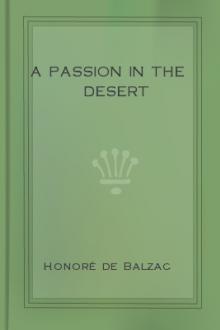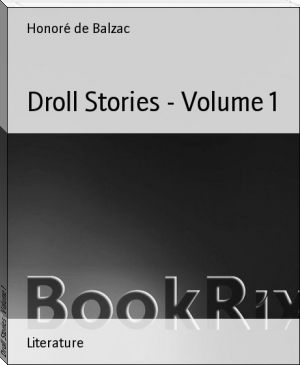author - "Honoré de Balzac"

Description
Father Goriot, today considered one of Balzac’s most important works, is part of his novel sequence The Human Comedy. It’s the first of Balzac’s novels to feature recurring characters, a technique that he famously developed in his subsequent novels.
Set in Paris during the Bourbon Restoration of the early 1800s, Father Goriot follows Eugène de Rastignac, a student born to noble roots but little means, as he tries to climb the social ladder in Paris. The impoverished Goriot is staying at the same boardinghouse as Rastignac—and Rastignac sees opportunity in Goriot’s richly-married and elegant daughters.
The novel has been widely praised for its realist portrayal of Parisian life of various social classes, and its deep influence on French literature is still felt today. While it had chapter breaks when it was initially serialized, Balzac removed them when compiling his definitive edition of The Human Comedy, a change that is preserved in this edition.

as at sea on aclear day, with one line of light, definite as the cut of a sword.
The Provencal threw his arms round the trunk of one of the palm trees,as though it were the body of a friend, and then, in the shelter ofthe thin, straight shadow that the palm cast upon the granite, hewept. Then sitting down he remained as he was, contemplating withprofound sadness the implacable scene, which was all he had to lookupon. He cried aloud, to measure the solitude. His voice, lost in thehollows of the hill, sounded faintly, and aroused no echo--the echowas in his own heart. The Provencal was twenty-two years old:--heloaded his carbine.
"There'll be time enough," he said to himself, laying on the groundthe weapon which alone could bring him deliverance.
Viewing alternately the dark expanse of the desert and the blueexpanse of the sky, the soldier dreamed of France--he smelled withdelight the gutters of Paris--he remembered the towns through which hehad passed, the faces of his comrades, the most

ns of theprolix document. Five clerks with rows of hungry teeth, bright,mocking eyes, and curly heads, lifted their noses towards the door,after crying all together in a singing tone, "Come in!"
Boucard kept his face buried in a pile of papers--/broutilles/ (oddsand ends) in French law jargon--and went on drawing out the bill ofcosts on which he was busy.
The office was a large room furnished with the traditional stool whichis to be seen in all these dens of law-quibbling. The stove-pipecrossed the room diagonally to the chimney of a bricked-up fireplace;on the marble chimney-piece were several chunks of bread, triangles ofBrie cheese, pork cutlets, glasses, bottles, and the head clerk's cupof chocolate. The smell of these dainties blended so completely withthat of the immoderately overheated stove and the odor peculiar tooffices and old papers, that the trail of a fox would not have beenperceptible. The floor was covered with mud and snow, brought in bythe clerks. Near the window stood th

nd fits of creative energy. And then its pleasure, its repose,are an exhausting debauch, swarthy and black with blows, white withintoxication, or yellow with indigestion. It lasts but two days, butit steals to-morrow's bread, the week's soup, the wife's dress, thechild's wretched rags. Men, born doubtless to be beautiful--for allcreatures have a relative beauty--are enrolled from their childhoodbeneath the yoke of force, beneath the rule of the hammer, the chisel,the loom, and have been promptly vulcanized. Is not Vulcan, with hishideousness and his strength, the emblem of this strong and hideousnation--sublime in its mechanical intelligence, patient in its season,and once in a century terrible, inflammable as gunpowder, and ripewith brandy for the madness of revolution, with wits enough, in fine,to take fire at a captious word, which signifies to it always: Goldand Pleasure! If we comprise in it all those who hold out their handsfor an alms, for lawful wages, or the five francs that are granted

Description
Father Goriot, today considered one of Balzac’s most important works, is part of his novel sequence The Human Comedy. It’s the first of Balzac’s novels to feature recurring characters, a technique that he famously developed in his subsequent novels.
Set in Paris during the Bourbon Restoration of the early 1800s, Father Goriot follows Eugène de Rastignac, a student born to noble roots but little means, as he tries to climb the social ladder in Paris. The impoverished Goriot is staying at the same boardinghouse as Rastignac—and Rastignac sees opportunity in Goriot’s richly-married and elegant daughters.
The novel has been widely praised for its realist portrayal of Parisian life of various social classes, and its deep influence on French literature is still felt today. While it had chapter breaks when it was initially serialized, Balzac removed them when compiling his definitive edition of The Human Comedy, a change that is preserved in this edition.

as at sea on aclear day, with one line of light, definite as the cut of a sword.
The Provencal threw his arms round the trunk of one of the palm trees,as though it were the body of a friend, and then, in the shelter ofthe thin, straight shadow that the palm cast upon the granite, hewept. Then sitting down he remained as he was, contemplating withprofound sadness the implacable scene, which was all he had to lookupon. He cried aloud, to measure the solitude. His voice, lost in thehollows of the hill, sounded faintly, and aroused no echo--the echowas in his own heart. The Provencal was twenty-two years old:--heloaded his carbine.
"There'll be time enough," he said to himself, laying on the groundthe weapon which alone could bring him deliverance.
Viewing alternately the dark expanse of the desert and the blueexpanse of the sky, the soldier dreamed of France--he smelled withdelight the gutters of Paris--he remembered the towns through which hehad passed, the faces of his comrades, the most

ns of theprolix document. Five clerks with rows of hungry teeth, bright,mocking eyes, and curly heads, lifted their noses towards the door,after crying all together in a singing tone, "Come in!"
Boucard kept his face buried in a pile of papers--/broutilles/ (oddsand ends) in French law jargon--and went on drawing out the bill ofcosts on which he was busy.
The office was a large room furnished with the traditional stool whichis to be seen in all these dens of law-quibbling. The stove-pipecrossed the room diagonally to the chimney of a bricked-up fireplace;on the marble chimney-piece were several chunks of bread, triangles ofBrie cheese, pork cutlets, glasses, bottles, and the head clerk's cupof chocolate. The smell of these dainties blended so completely withthat of the immoderately overheated stove and the odor peculiar tooffices and old papers, that the trail of a fox would not have beenperceptible. The floor was covered with mud and snow, brought in bythe clerks. Near the window stood th

nd fits of creative energy. And then its pleasure, its repose,are an exhausting debauch, swarthy and black with blows, white withintoxication, or yellow with indigestion. It lasts but two days, butit steals to-morrow's bread, the week's soup, the wife's dress, thechild's wretched rags. Men, born doubtless to be beautiful--for allcreatures have a relative beauty--are enrolled from their childhoodbeneath the yoke of force, beneath the rule of the hammer, the chisel,the loom, and have been promptly vulcanized. Is not Vulcan, with hishideousness and his strength, the emblem of this strong and hideousnation--sublime in its mechanical intelligence, patient in its season,and once in a century terrible, inflammable as gunpowder, and ripewith brandy for the madness of revolution, with wits enough, in fine,to take fire at a captious word, which signifies to it always: Goldand Pleasure! If we comprise in it all those who hold out their handsfor an alms, for lawful wages, or the five francs that are granted





